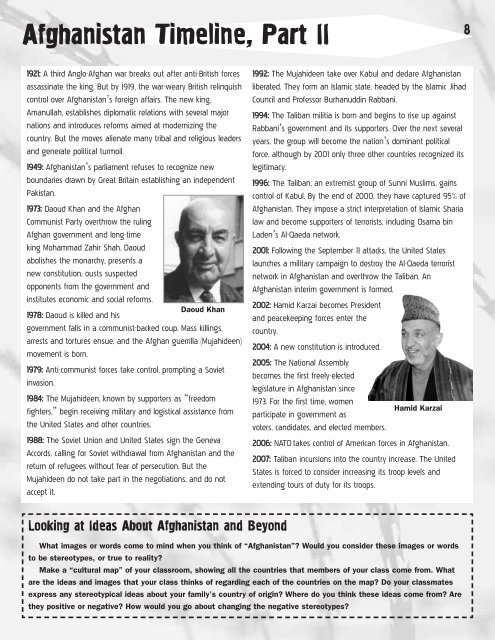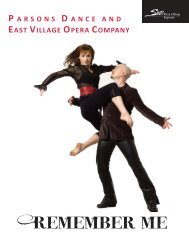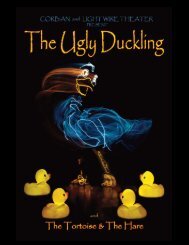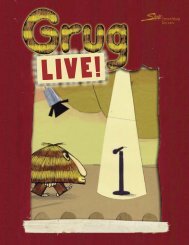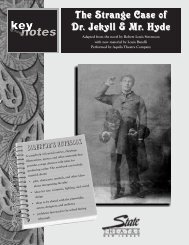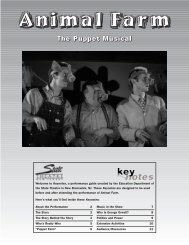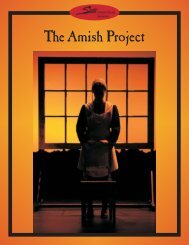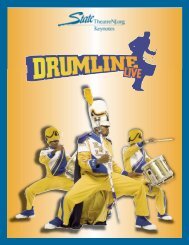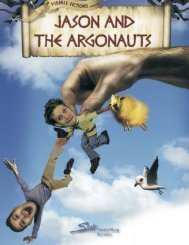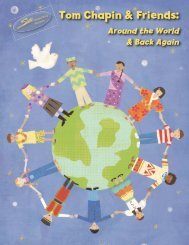The Kite Runner - State Theatre
The Kite Runner - State Theatre
The Kite Runner - State Theatre
Create successful ePaper yourself
Turn your PDF publications into a flip-book with our unique Google optimized e-Paper software.
Afghanistan Timeline, Part II81921: A third Anglo-Afghan war breaks out after anti-British forcesassassinate the king. But by 1919, the war-weary British relinquishcontrol over Afghanistan’s foreign affairs. <strong>The</strong> new king,Amanullah, establishes diplomatic relations with several majornations and introduces reforms aimed at modernizing thecountry. But the moves alienate many tribal and religious leadersand generate political turmoil.1949: Afghanistan’s parliament refuses to recognize newboundaries drawn by Great Britain establishing an independentPakistan.1973: Daoud Khan and the AfghanCommunist Party overthrow the rulingAfghan government and long-timeking Mohammad Zahir Shah. Daoudabolishes the monarchy, presents anew constitution, ousts suspectedopponents from the government andinstitutes economic and social reforms.Daoud Khan1978: Daoud is killed and hisgovernment falls in a communist-backed coup. Mass killings,arrests and tortures ensue, and the Afghan guerrilla (Mujahideen)movement is born.1979: Anti-communist forces take control, prompting a Sovietinvasion.1984: <strong>The</strong> Mujahideen, known by supporters as “freedomfighters,” begin receiving military and logistical assistance fromthe United <strong>State</strong>s and other countries.1988: <strong>The</strong> Soviet Union and United <strong>State</strong>s sign the GenevaAccords, calling for Soviet withdrawal from Afghanistan and thereturn of refugees without fear of persecution. But theMujahideen do not take part in the negotiations, and do notaccept it.1992: <strong>The</strong> Mujahideen take over Kabul and declare Afghanistanliberated. <strong>The</strong>y form an Islamic state, headed by the Islamic JihadCouncil and Professor Burhanuddin Rabbani.1994: <strong>The</strong> Taliban militia is born and begins to rise up againstRabbani’s government and its supporters. Over the next severalyears, the group will become the nation’s dominant politicalforce, although by 2001 only three other countries recognized itslegitimacy.1996: <strong>The</strong> Taliban, an extremist group of Sunni Muslims, gainscontrol of Kabul. By the end of 2000, they have captured 95% ofAfghanistan. <strong>The</strong>y impose a strict interpretation of Islamic Sharialaw and become supporters of terrorists, including Osama binLaden’s Al-Qaeda network.2001: Following the September 11 attacks, the United <strong>State</strong>slaunches a military campaign to destroy the Al-Qaeda terroristnetwork in Afghanistan and overthrow the Taliban. AnAfghanistan interim government is formed.2002: Hamid Karzai becomes Presidentand peacekeeping forces enter thecountry.2004: A new constitution is introduced.2005: <strong>The</strong> National Assemblybecomes the first freely-electedlegislature in Afghanistan since1973. For the first time, womenHamid Karzaiparticipate in government asvoters, candidates, and elected members.2006: NATO takes control of American forces in Afghanistan.2007: Taliban incursions into the country increase. <strong>The</strong> United<strong>State</strong>s is forced to consider increasing its troop levels andextending tours of duty for its troops.Looking at Ideas About Afghanistan and BeyondWhat images or words come to mind when you think of “Afghanistan”? Would you consider these images or wordsto be stereotypes, or true to reality?Make a “cultural map” of your classroom, showing all the countries that members of your class come from. Whatare the ideas and images that your class thinks of regarding each of the countries on the map? Do your classmatesexpress any stereotypical ideas about your family’s country of origin? Where do you think these ideas come from? Arethey positive or negative? How would you go about changing the negative stereotypes?


